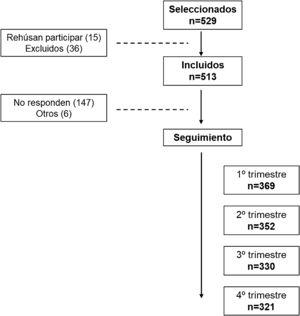
Introduction
SARS-CoV-2 infection is an emerging disease that represents a threat to life globally, with more than 179 million confirmed cases and 3 million deaths. In Colombia, where almost 5 million infections and approximately 127 thousand deaths have been reported, it presents a wide variety of neurological manifestations that range from mild to severe symptoms.
Objective
This study describes the characteristics of neurological manifestations in patients with COVID-19 in the period March–September 2020 at a tertiary hospital in Bogota.
Methods
We performed a cross-sectional descriptive study. We selected patients by non-probability sampling, including all patients attended by the neurology service at our hospital. We included all patients with infection confirmed by RT-PCR test and neurological disease confirmed by tomography, study of cerebrospinal fluid, and clinical manifestations reported in the medical history. We excluded epileptic patients who presented seizures as the only clinical manifestation.
Results
In a total of 58 patients, the mean age was 58 years, with 60.3% of patients being men; 65.5% were alert at admission. The main neurological symptom was brain ischaemia, in 36.2%, followed by seizures, in 25.9%. Arterial hypertension was observed in 58.6%. We observed no alterations in the cerebrospinal fluid; the mean hospital stay was 35 days, and 41.4% of patients died.
Conclusions
SARS-CoV-2 infection not only affects the respiratory system, but can also cause a range of neurological manifestations ranging from mild symptoms such as headache, dysgeusia, and anosmia to severe complications such as seizures, brain ischaemia/haemorrhage, encephalopathy, or death.


